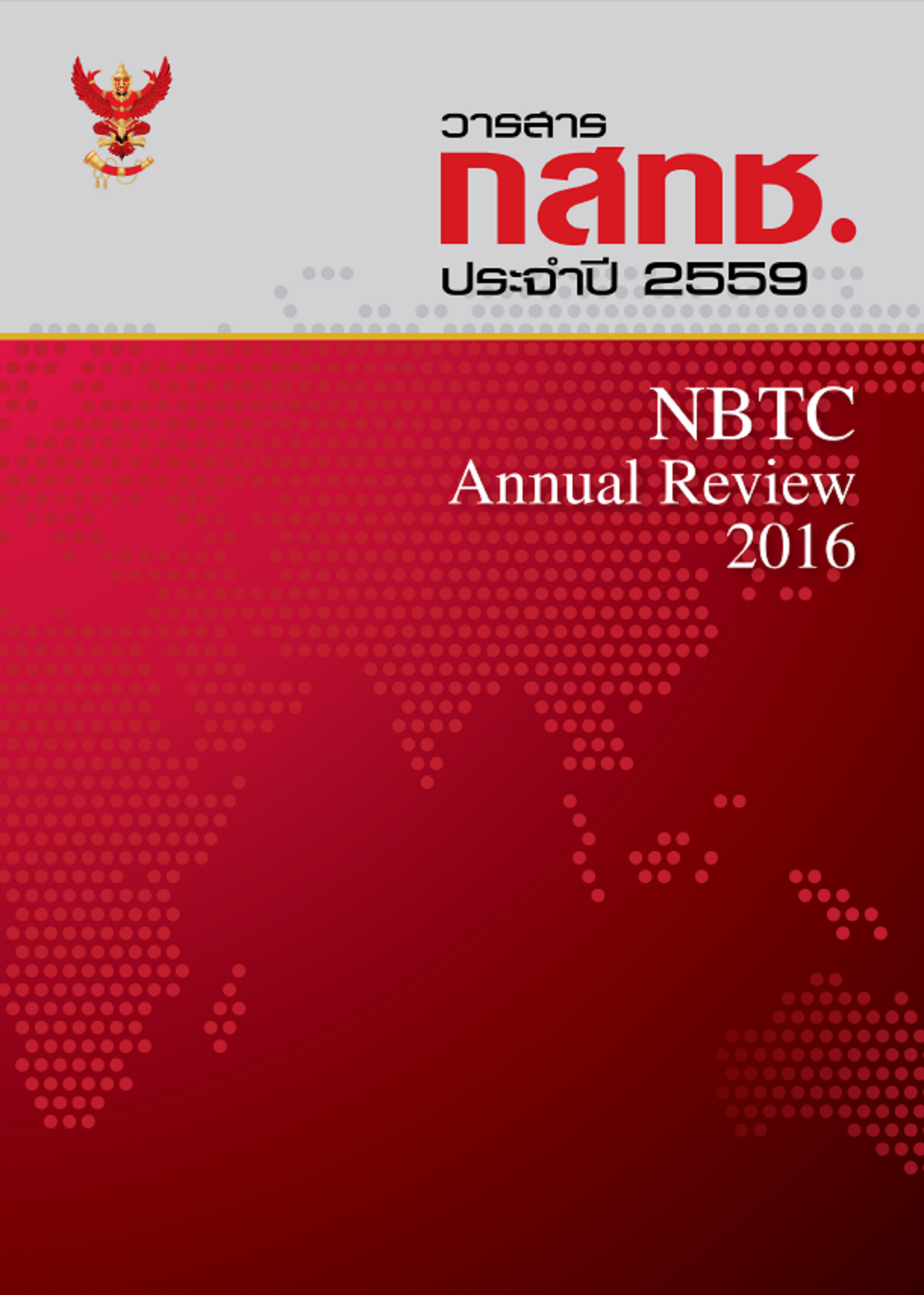ปรัชญาเศรษฐกิจพอเพียงกับความท้าทายใหม่ของการคุ้มครองผู้บริโภคในกิจการกระจายเสียงและโทรทัศน์ : วิเคราะห์ ประเมิน และพัฒนา
Keywords:
Sufficiency Economy Philosophy, consumer protection, broadcasting, radio and television, development of quality of lifeAbstract
The Article on “The Sufficiency Economy Philosophy and New Challenges in Broadcasting Consumers Protection : Analyze, Evaluation and Development” was a philosophy research using dialectic and discursive method. The research aimed to illustrate to explore on how to use the Sufficiency Economy Paradigm: 3 principles of being moderate, rational, immune and 2 conditions of cognition and virtue in the broadcasting consumer protection. It is stated that broadcasting consumer protection was a way to protect consumer both from and of broadcasting businesses. In this Digital Era, the broadcasting industry was argued to be facing new challenges in the new context. The result of this philosophy research explained the way to use the Sufficiency Economy Paradigm for work on broadcasting consumer protection to be adapted by related sectors and stake holders namely broadcasting regulator, broadcasting consumers/audiences and broadcasters. Creativity, Adaptivity, Collaboration and Requisivity were presented to be the way to the development of quality of people’s lives and the society.
References
กิติมา สุรสนธิ. (2542). ความรู้ทางการสื่อสาร. กรุงเทพฯ : คณะวารสารศาสตร์และสื่อสารมวลชน มหาวิทยาลัยธรรมศาสตร์.
กีรติ บุญเจือ. (2546). เริ่มรู้จักปรัชญา เล่ม 1 ในชุด ปรัชญาและศาสนาเซนต์จอห์น. กรุงเทพฯ : สานักพิมพ์มหาวิทยาลัย
เซนต์จอห์น.
กีรติ บุญเจือ. ปรัชญาเศรษฐกิจพอเพียง. วารสาร อปท. ตอนที่ 13. สืบค้นเมื่อ 25 ธันวาคม 2558,
จากhttps://thamdimisukh.wordpress.com/
จิรายุ อิศรางกูร ณ อยุธยา. (2551). "คำปรารภ" ใน คำพ่อสอน ประมวลพระบรมราโชวาทและพระราชดำรัสเกี่ยวกับเศรษฐกิจพอ
เพียง, กรุงเทพฯ : มูลนิธิพระดาบส
ตรี บุญเจือ. (2558). คนพิการกับการเข้าถึงเทคโนโลยีสื่อสารด้านกิจการกระจายเสียงและโทรทัศน์เพื่อกาพัฒนาคุณภาพชีวิต:
การศึกษาเชิงวิเคราะห์ วิจักษ์ และวิธาน. วิทยานิพนธ์ปรัชญาดุษฎีบัณฑิต. มหาวิทยาลัยราชภัฏสวนสุนันทา.ไทยยุโรป.เน็ต.
แนวโน้มนโยบายการคุ้มครองผู้บริโภคของ EU ปี 2551. สืบค้นเมื่อ 31 พฤษภาคม 2559. จาก https://www2.thaieurope.
net/แนวโน้มนโยบายการคุ้มครอง/
สุทธาสินี จิตรกรรมไทย. (2550) สหประชาชาติ กับ "เศรษฐกิจพอเพียง" ของ "ในหลวง", หนังสือพิมพ์มติชน วันที่ 26 มีนาคม
พ.ศ. 2550 ปีที่ 30 ฉบับที่ 10607
สำนักงานคณะกรรมการกิจการกระจายเสียง กิจการโทรทัศน์ และกิจการโทรคมนาคมแห่งชาติ, (2558), 100 เรื่องน่ารู้ ผู้บริโภคสื่อ
วิทยุ – โทรทัศน์, เอกสารเผยแพร่ของหน่วยงาน
สำนักงานคณะกรรมการพัฒนาการเศรษฐกิจและสังคมแห่งชาติ. แผนพัฒนาศรษฐกิจและสังคมแห่งชาติ ฉบับที่ 11 (พ.ศ. 2555 –
. สืบค้นเมื่อ 25 ธันวาคม 2558, จาก https://www.nesdb.go.th/Default.aspx?tabid=395
Michael O'Shaughnessy & Jane Stadler. 2002. Media and Society. Oxford University Press. Second edition.
Heidegger, M. (1977). The question concerning technology and other essays. (Lovitt, W., Trans). New York: Harper
& Row.
UNESCO. (2012). Towards a suffiecncy ecomomy: a new ethical paradigm for sustainability. retrieved April 20,
, from https://www.unesco.org/new/en/social-and-human-sciences/themes/anticipation-and-foresight
/unesco-future-lectures/towards-a-sufficiency-economy.
Downloads
Published
How to Cite
Issue
Section
License
The Office of the NBTC holds the copyright of articles appearing in the journal. The Office of the NBTC allows the public or individuals to distribute, copy, or republish the work under a Creative Commons license (CC), with attribution (BY), No Derivatives (ND) and NonCommercial (NC); unless written permission is received from the Office of the NBTC.
Text, tables, and figures that appear in articles accepted for publication in this journal are personal opinion and responsibility of the author, and not binding on the NBTC and the Office of the NBTC. In case of errors, each author is solely responsible for their own article, and not concerning the NBTC and the NBTC Office in any way.



